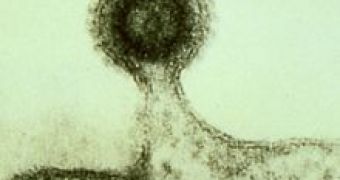Since curing AIDS is far away, the researchers have focused on preventing the HIV virus from spreading.
Research with female monkeys at the Tulane National Primate Research Center has shown, for the first time, that three different anti-viral agents in a vaginal gel protect the animals against an HIV-like virus.
The research suggests that a microbicide using compounds that inhibit the processes by which HIV attaches to and enters target cells could potentially provide a safe, effective and practical way to prevent HIV transmission in women.
Women make up nearly half of all people living with HIV worldwide, and 80 percent of new cases of HIV infection in women result from heterosexual intercourse. A vaginal gel containing microbicides could be applied topically to reduce the transmission of HIV and other sexually transmitted infections.
Ronald Veazey, chair of the Division of Comparative Pathology at the Tulane National Primate Research Center, lead author of the paper, conducted the research with simian-human immunodeficiency virus (SHIV), a hybrid virus made in the laboratory from HIV and its cousin, SIV, which infects only monkeys.
The Tulane team tested gels containing two small molecules and a peptide, alone and in combination, designed to block SHIV from fusing with its target cells at or near the tissue lining of the vagina, to see whether this would prevent the virus from entering the monkeys' bodies.
The results were promising, 16 of the 20 monkeys which were given microbicides resisted the infection. Moreover, none of the monkeys experienced vaginal irritation or inflammation caused by the experimental gels.

 14 DAY TRIAL //
14 DAY TRIAL //